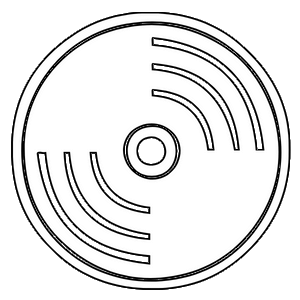Must-Have Resources for Medical Coding
Medical coding is an intricate and crucial aspect of the healthcare industry. It involves translating medical reports into standardized codes used for billing and documentation purposes. As a medical coder, having access to the right tools is not just beneficial; it’s necessary for accuracy and efficiency. With the healthcare landscape constantly evolving, coders must keep their skills and resources current to ensure they meet industry demands. Below are the must-have resources and practices to maintain a sharp edge in the field of medical coding.
Essential Resources for Every Medical Coder’s Toolkit

A successful medical coder should have a reliable toolkit, including current editions of coding books like the ICD and CPT, which contain codes and descriptions for various medical procedures and diagnoses. Online resources like the American Health Information Management Association (AHIMA) and the American Academy of Professional Coders (AAPC) offer updates on coding standards and industry news. Subscription-based online services can provide real-time coding assistance.
Technology plays a crucial role in the medical coding process, with advanced software platforms enhancing productivity by offering code lookup, validation, and electronic claim submission tools. Integrating software into daily routines streamlines workflows and reduces human error. A comprehensive understanding of healthcare privacy laws, specifically the Health Insurance Portability and Accountability Act (HIPAA), is essential for ensuring patient confidentiality and maintaining the integrity of the coder’s work.
Comprehensive Coding Manuals and Guidelines
Medical coding is crucial for accurate patient encounter documentation and billing. Coders must have a thorough understanding of medical coding manuals like CPT, ICD, and HCPCS, which are updated regularly. The complex and ever-changing medical coding landscape requires diligent adherence to coding conventions and instructional notes.
Government agencies like CMS provide additional guidance on coding and reimbursement matters specific to federal programs. Coders must have a passion for detail and a firm understanding of medical terminology to interpret coding manuals accurately. They often cross-reference guidelines to ensure precise codes for patient encounter documentation and billing.
Navigating Advanced Medical Coding Software
Advancements in technology have led to the development of advanced medical coding software, which significantly streamlines the coding process. These software features built-in codebooks, scrubbing tools for error checks, and features to predict correct codes. They can integrate with electronic health records (EHR) systems, allowing coders to access patient information directly and accurately.
These systems also offer the convenience of securely storing patient data, meeting privacy and compliance requirements. Navigating these advanced platforms requires skill and training. The choice of software depends on the specifics of the healthcare setting, with factors like user-friendliness, customer support, and integration capabilities being crucial.
Continuous Education and Certification Programs in Medical Coding

Medical coding requires constant learning to keep up with updates in coding systems and compliance rules. Certification programs from organizations like AAPC and AHIMA ensure coders stay current while demonstrating their expertise. Continuing education credits, often needed for maintaining certifications, can be earned through seminars, webinars, and workshops that also provide networking opportunities.
Online platforms like Med Genius make it easy for coders to enhance their skills at their own pace while connecting with other professionals. For those looking to advance further, pursuing a degree in health information management offers a deeper understanding of the field and opens doors to career growth and specialization.
Online Forums and Support Networks for Medical Coding Professionals
Medical coding is a complex field that requires mutual support and knowledge exchange among its members. Online forums and social media groups have become crucial for sharing information and experiences, contributing to professional growth. These communities often discuss complex coding scenarios and guidelines, with experienced professionals and novices sharing insights.
Mentorship opportunities are also available, with experienced medical coders providing guidance to newcomers. Professional associations also host forums and local chapters, addressing regional coding issues and providing localized support. These networks help coders navigate the challenges of the profession and foster professional growth.
Altogether, navigating the intricacies of medical coding requires a blend of updated educational resources, advanced software tools, continuous professional development, and a strong support network. By capitalizing on these essential resources, medical coders can ensure their work is both accurate and compliant, contributing to the efficacy of healthcare delivery and the financial stability of medical practices.













